Ian McKellen (Part 1)
Ian McKellen

Sir Ian Murray McKellen CH CBE, born on May 25, 1939, is a distinguished English actor with a career spanning over seven decades. Renowned for his versatility, McKellen has excelled in roles across various genres, from Shakespearean dramas and modern theatre to popular fantasy and science fiction. Knighted by Queen Elizabeth II in 1991, he is considered a British cultural icon.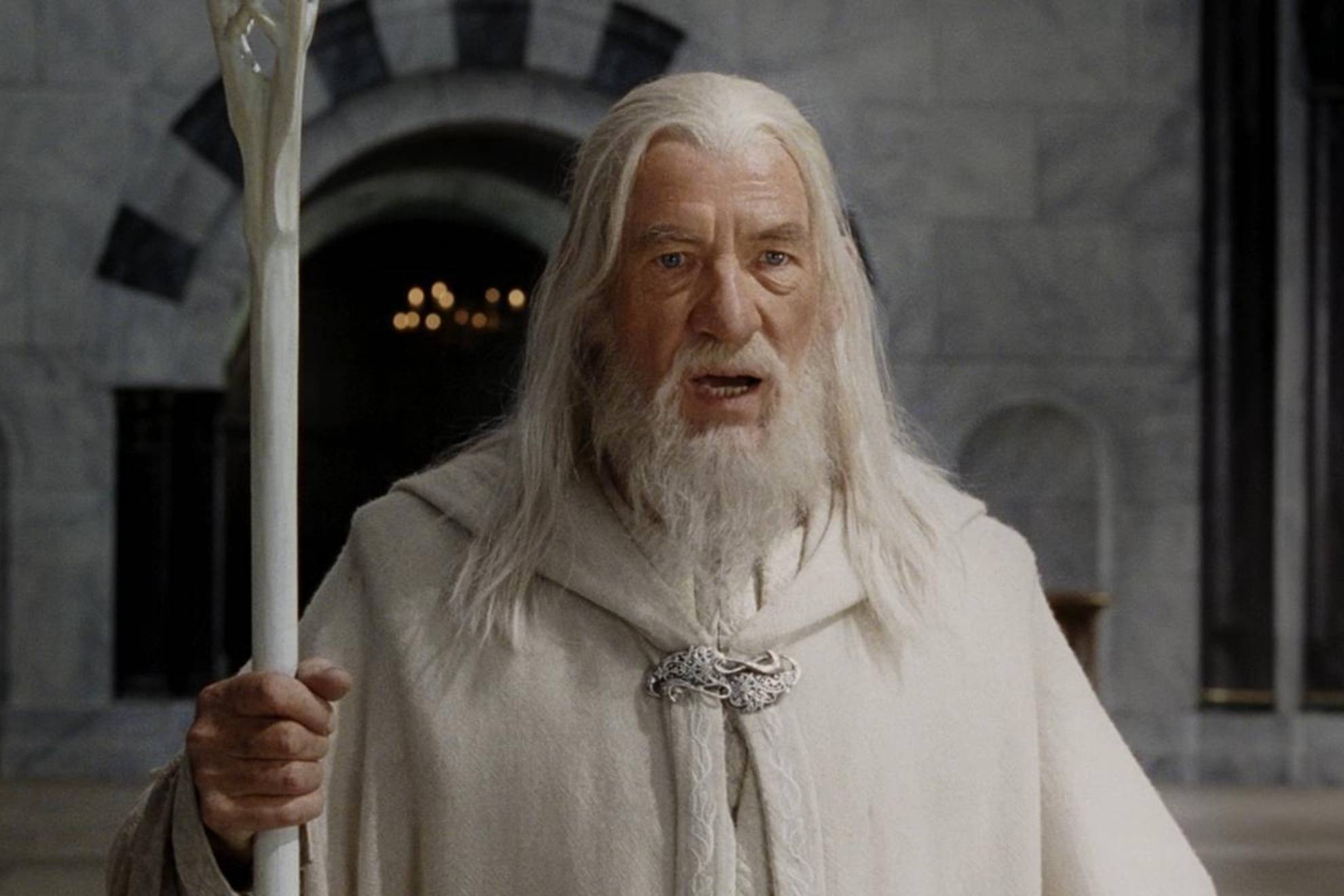
McKellen's theatrical journey began in 1961 at the Belgrade Theatre, where he joined the repertory company. His West End debut followed in 1965. In 1969, he was invited to join the Prospect Theatre Company, where he took on lead roles in Shakespeare's "Richard II" and Marlowe's "Edward II."
Throughout the 1970s, McKellen became a prominent figure in both the Royal Shakespeare Company and the National Theatre of Great Britain, earning five Olivier Awards for his outstanding performances.
Play for his role as Antonio Salieri in "Amadeus" (1980). His return to Broadway included notable productions like "Wild Honey" (1986), "Dance of Death" (1990), "No Man's Land" (2013), and "Waiting for Godot" (2013), the latter being a joint venture with Patrick Stewart.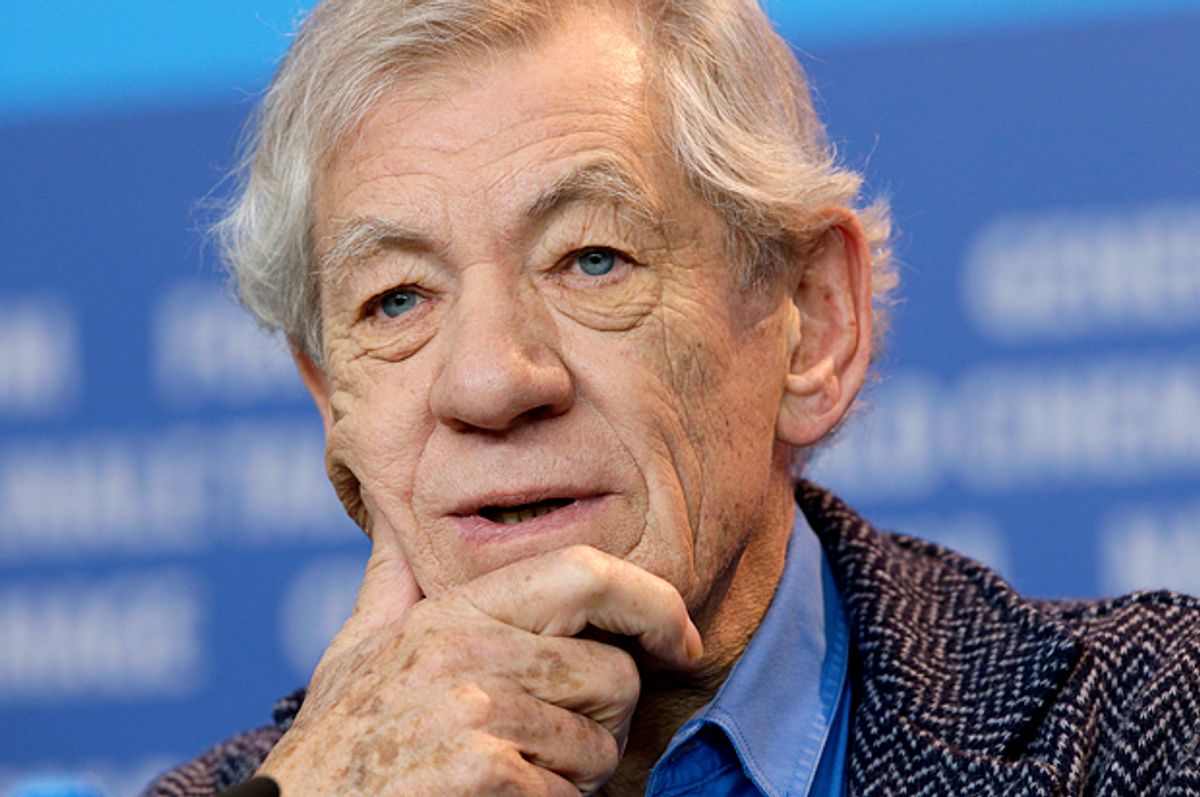
McKellen gained global acclaim for his film roles, portraying iconic characters such as Richard III (1995), James Whale in "Gods and Monsters" (1998), Magneto in the X-Men films, and Gandalf in "The Lord of the Rings" (2001–2003) and "The Hobbit" (2012–2014) trilogies. His extensive filmography also includes noteworthy works like "A Touch of Love" (1969), "Plenty" (1985), "Six Degrees of Separation" (1993), "Restoration" (1995), "Mr. Holmes" (2015), and "The Good Liar" (2019).
Apart from his contributions to the entertainment industry, McKellen came out as gay in 1988 and has since been a prominent advocate for LGBT social movements globally. He received the Freedom of the City of London in October 2014 and co-founded Stonewall, an LGBT rights lobby group in the United Kingdom.:max_bytes(150000):strip_icc():focal(999x0:1001x2)/ian-mckellen-1-fc2e401974004c4487104e251ded04dd.jpg)
McKellen serves as a patron for various organizations, including LGBT History Month, Pride London, Oxford Pride, GAY-GLOS, LGBT Foundation, and FFLAG. His impact extends beyond the stage and screen, making him a respected figure in both the artistic and advocacy realms.
Ian Murray McKellen, born on May 25, 1939, in Burnley, Lancashire, is an esteemed English actor with a career spanning over seven decades. The son of Margery Lois and Denis Murray McKellen, he grew up with his sister, Jean. The family experienced the impact of World War II, moving to Wigan just before the outbreak and later relocating to Bolton in 1951.
McKellen's father, a civil engineer and lay preacher, had Protestant Irish and Scottish roots. The family environment was deeply Christian but non-orthodox. McKellen's early life was shaped by the wartime experiences, as he slept under a steel plate until the age of four. His upbringing emphasized leading a Christian life by treating everyone with Christian values.
At the age of 12, tragedy struck with the death of his mother from breast cancer. 
His father passed away when he was 25. McKellen's coming out as gay was met with acceptance from his stepmother, Gladys McKellen, a Quaker. Despite the Christian upbringing, his family supported him, with his great-great-grandfather being an activist in campaigns for workers' rights.
Educated at Bolton School, McKellen's passion for acting blossomed at Bolton Little Theatre, where he is now the patron. His early exposure to theatre, including a memorable Christmas present of a Victorian toy theatre, fueled his interest. His sister introduced him to Shakespeare plays performed by local amateurs.
In 1958, McKellen earned a scholarship to St Catharine's College, Cambridge, where he studied English literature. He became a member of the Marlowe Society, participating in 23 plays over three years. His performances, including roles in Henry IV and Cymbeline, garnered acclaim. 
During this period, he worked with directors such as Peter Hall, John Barton, and Dadie Rylands, setting the stage for his illustrious career.
Ian McKellen's career continued to thrive in the 1960s and 1970s, marking his presence on both stage and screen. After his professional debut in 1961 at the Belgrade Theatre, he joined Laurence Olivier's National Theatre Company in 1965 and later the Chichester Festival.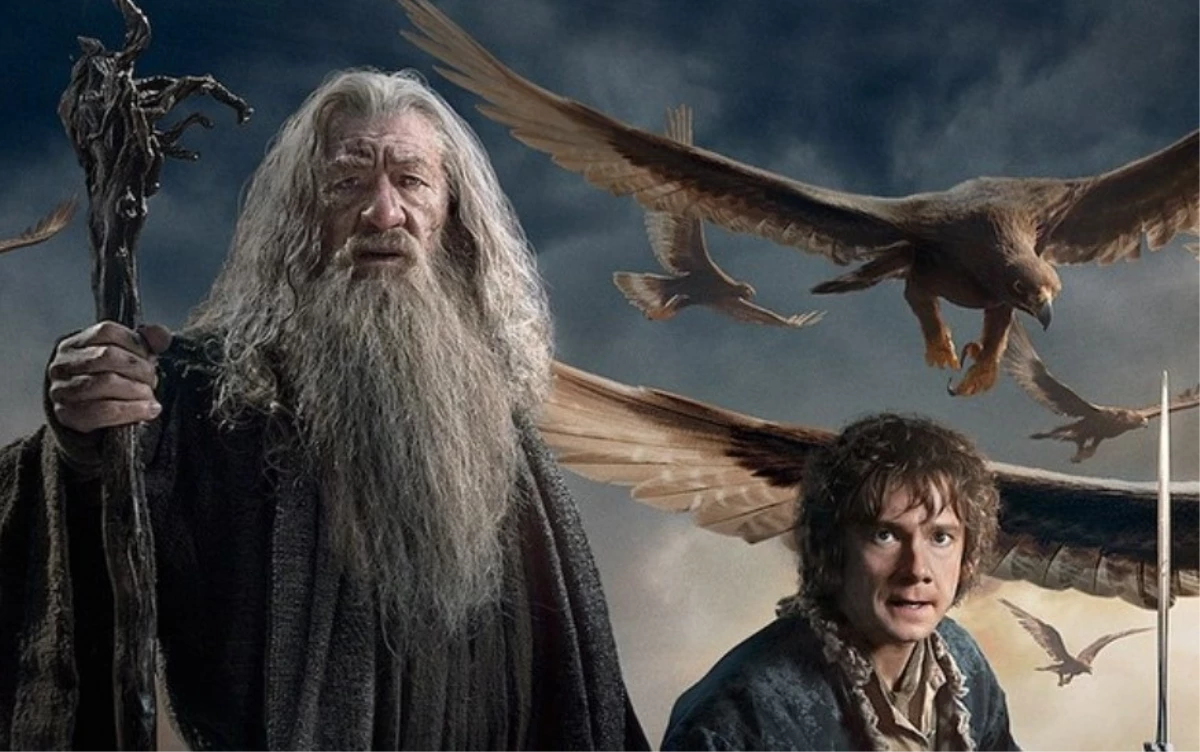
His breakthrough performances in Shakespeare's "Richard II" and Christopher Marlowe's "Edward II" with the Prospect Theatre Company in 1969 garnered attention.
McKellen made significant contributions to television, playing the title character in the BBC's 1966 adaptation of "David Copperfield," which earned widespread viewership. His early film roles date back to 1969, with notable performances in "A Touch of Love" and "Priest of Love" (1980) as D. H. Lawrence.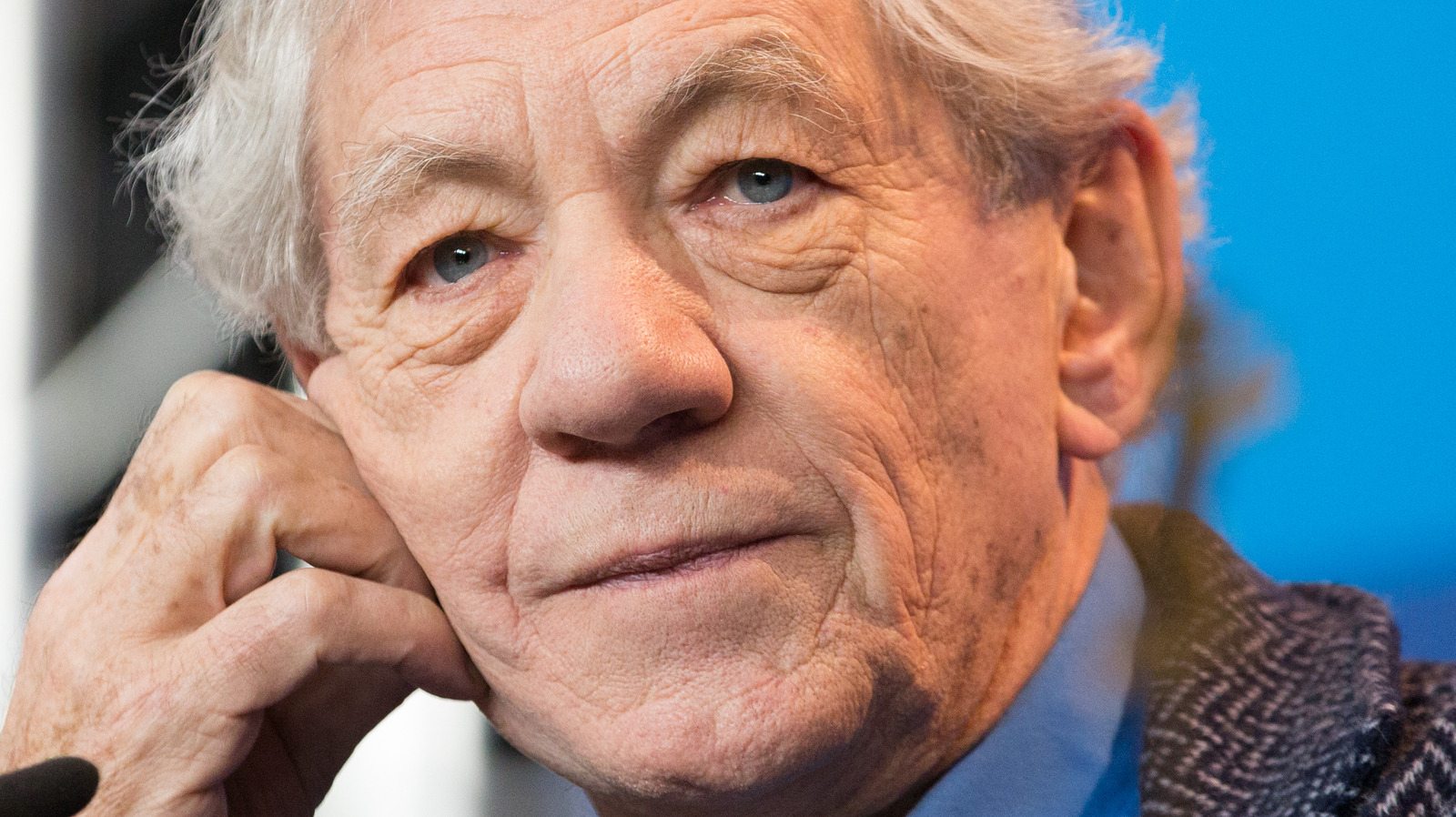
In the 1970s, McKellen became a prominent figure in British theatre, frequently performing at the Royal Shakespeare Company and the Royal National Theatre. His roles included Lady Wishfort's Footman, Kruschov, Edgar in "The Way of the World," Romeo in "Romeo & Juliet," King Leontes in "The Winter's Tale," Macbeth, and Iago in "Othello." His portrayal of Antonio Salieri in the Broadway production of Peter Shaffer's "Amadeus" in 1979 earned him the Tony Award for Best Actor in a Play.
Transitioning to film in the 1980s, McKellen starred as D. H. Lawrence in "Priest of Love" (1981) and featured in Michael Mann's horror film "The Keep" (1983). In 1985, he appeared in "Plenty," a film adaptation of the David Hare play, alongside Meryl Streep.
As his career progressed, McKellen showcased versatility, seamlessly moving between stage and screen, earning accolades for his compelling performances.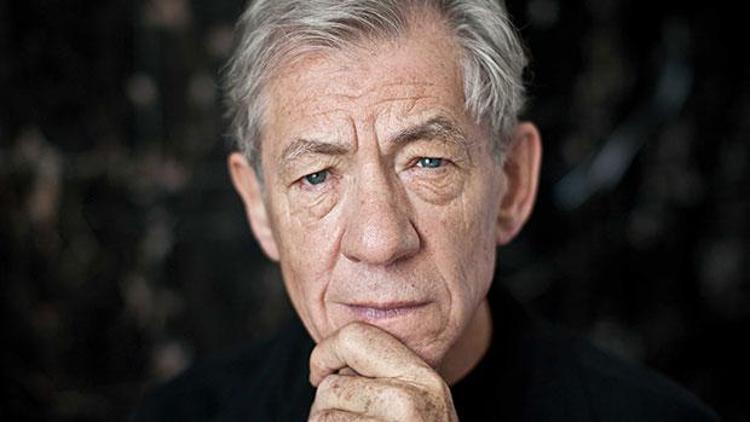
In 1986, Ian McKellen made a return to Broadway, starring in the revival of Anton Chekhov's first play, "Wild Honey," alongside Kim Cattrall and Kate Burton. The play revolves around a Russian schoolteacher's struggle to remain faithful to his wife amid the attention of three other women. McKellen's performance received mixed reviews from critics, with Frank Rich of The New York Times praising his "bravura and athletically graceful technique" but also noting the challenge of carrying a supporting cast.
In 1989, McKellen took on the role of Iago in a production of "Othello" by the Royal Shakespeare Company. He also starred in the British drama "Scandal" (1989), a fictionalized account of the Profumo affair, portraying John Profumo. The film, which premiered at the 1989 Cannes Film Festival and competed for the Palme d'Or, featured Joanne Whalley and John Hurt.
During this period, McKellen demonstrated his commitment to his craft and offered valuable advice to his friend and colleague, Patrick Stewart. When Stewart considered accepting the role of Captain Jean-Luc Picard in "Star Trek: The Next Generation," McKellen initially advised against it, urging him not to sacrifice his respected theatrical career for television.
However, he later acknowledged that Stewart's decision was wise, as it propelled him to global stardom and set an example that McKellen himself followed when co-starring with Stewart in the "X-Men" superhero film series.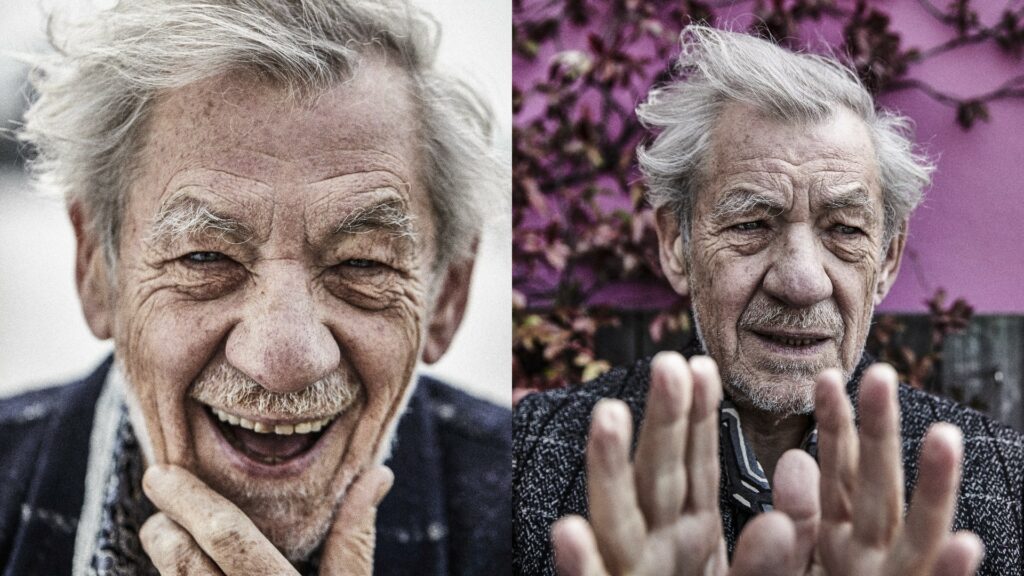
References
- "Monitor". Entertainment Weekly. No. 1208. 25 May 2012. p. 21.
- ^ "British Actor Ian Mckellen in China for Shakespeare on Film". British Council. 13 November 2016. Archived from the original on 14 November 2016. Retrieved 13 November 2016.
- ^ "Thirty of the very best of British". The Telegraph. 13 November 2016. Archived from the original on 9 April 2018. Retrieved 3 April 2018.
- ^ "Ian McKellen and Patrick Stewart head to Broadway together in two shows". Entertainment Weekly. 24 January 2013. Retrieved 19 May 2023.
- ^ "Ian McKellen receives Freedom of the City award for gay rights activism". The Independent. 31 October 2014. Archived from the original on 27 August 2018. Retrieved 26 August 2018.































